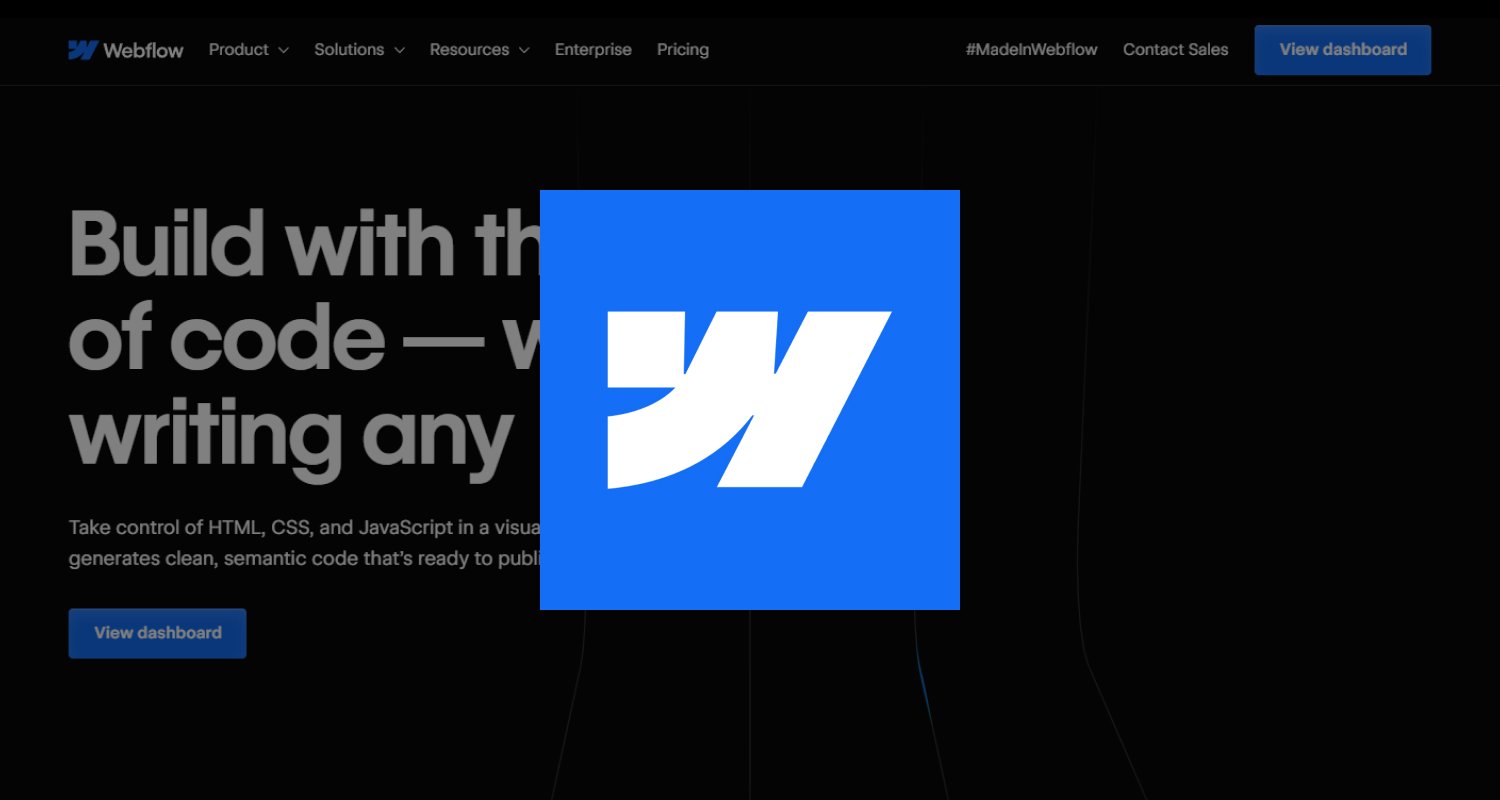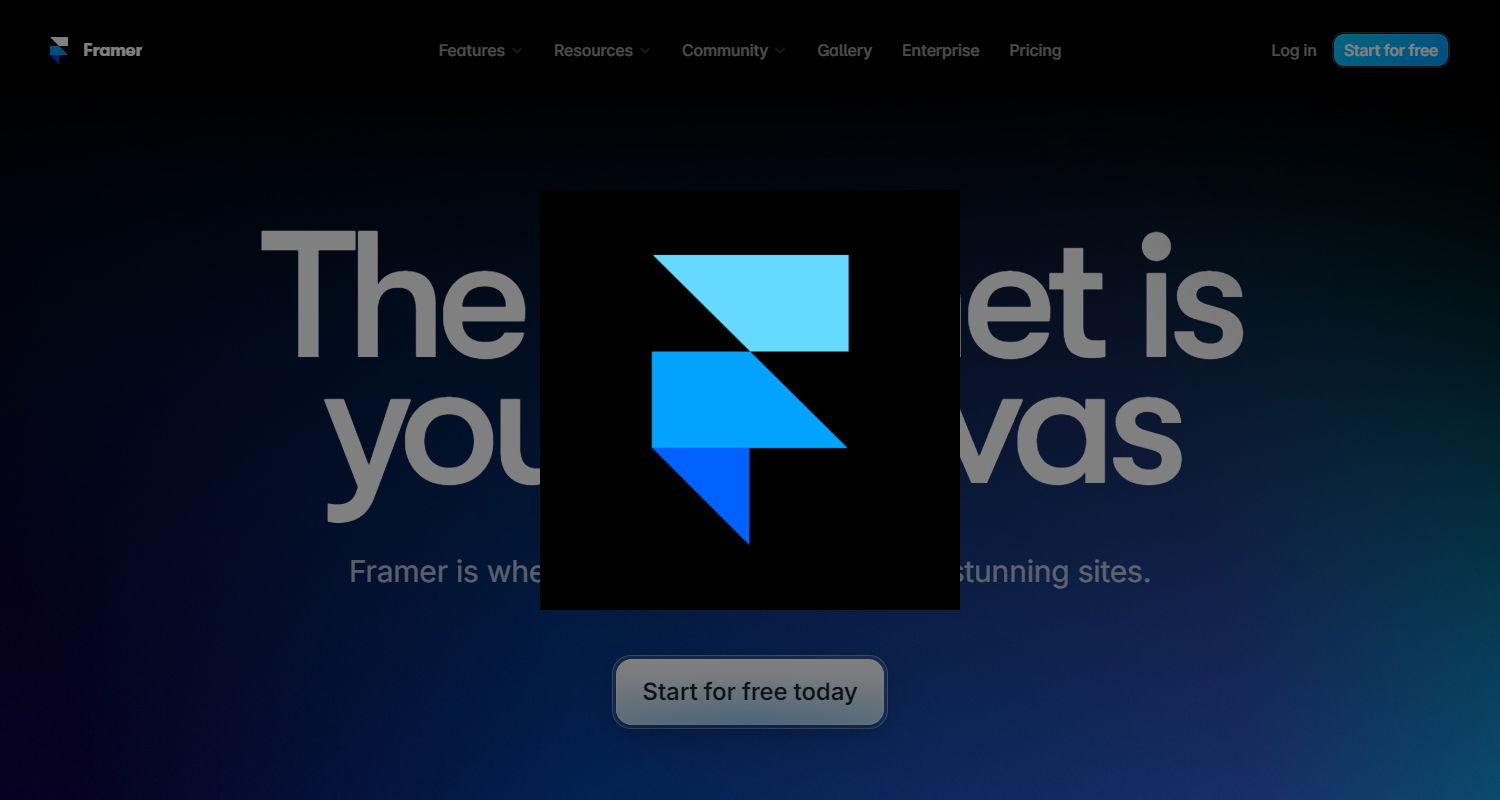Best Website Builder 2024
Our short guide simplifies the process by highlighting the finest platforms of 2024 with key features and helping bloggers,
entrepreneurs and agencies find the ideal tool to achieve their goals.
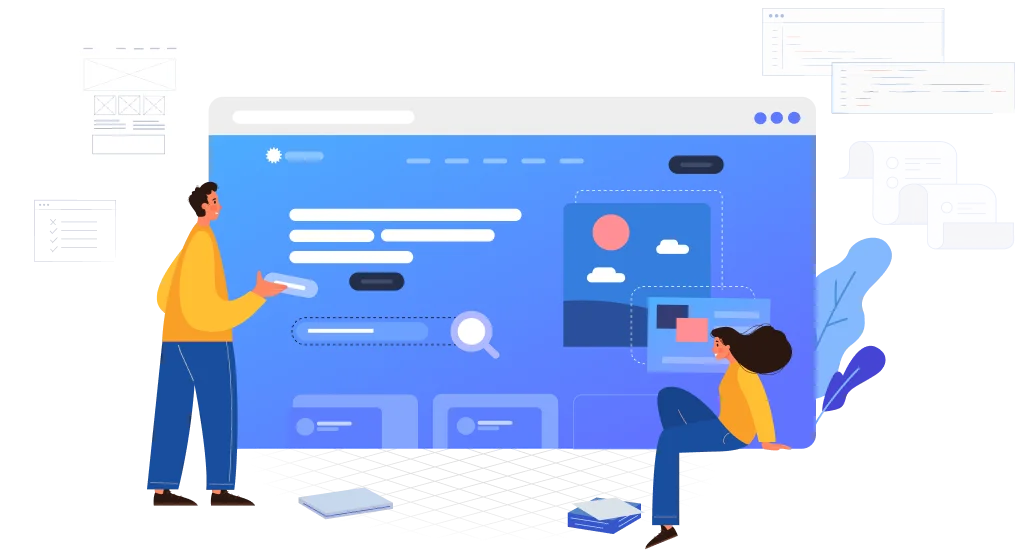
Website Builder
14-day free trial.
$16/month
Top-tier website builder
14-day free trial for new users.
$14/month
Best no-code Website Builder
14-day free trial
$29/month
Top E-commerce Website Builder
30-day money-back guarantee
$9.99/month
Best Value Website Builder
30-day free trial
$2.79/month
Best Website Builder
14-day free trial.
$16/month
Most User-Friendly Website Builder
One month for new users
$2.99/month
Top Choice for AI Enthusiasts
14-day free trial period.
$2.79/month
Framer-crafted personal website

best website creators
The benefits of website builders:
Easy Website for Your Business:
Build it yourself: No coding is needed, drag-and-drop tools let you create a professional website.
Edit on the go: Update your site from anywhere with a computer and internet, perfect for busy schedules.
Save money: Affordable plans make website builders a budget-friendly option compared to hiring a designer.
Boost your business: Get your business online fast and potentially reach new customers.
Selecting the Perfect Free Website Builder:
When it comes to choosing the right free website builder, there’s some legwork involved. Consider these factors to pinpoint the ideal match for your project:
Featured Offers
The Best Website Builder & Web Hosting Website
Choosing the Right Website Builder in 2024
While the focus of the original text was on e-commerce platforms, these tips can be applied to any website builder. Here’s an update on how to choose the best one for your needs:
Prioritize Your Needs:
- Ease of Use: Do you need a drag-and-drop interface for beginners, or are you comfortable with more advanced features?
- Security: Is robust protection for user data and PCI compliance crucial for your business?
- Scalability: Will your website need to handle increasing traffic, products, or pages in the future?
- Functionality: What features are essential, like marketing tools, payment processing, or analytics?
- Design: Consider your brand identity and desired user experience. What level of customization do you need?
Key Features to Consider:
- Security: Look for strong password protection, fraud prevention measures, and PCI compliance to safeguard your business.
- Scalability: Choose a platform that can grow with you! Consider storage, bandwidth, and upgrade options.
- Functionality: Identify features like payment processing, inventory management, marketing tools, and mobile responsiveness.
- Appearance & Themes: Prioritize visual appeal, user navigation, and branding options. Explore pre-built templates and customization tools.
Bonus Tip: Many website builders offer free trials or money-back guarantees. Take advantage of these to test-drive the platform before committing.
Why Website Builders Rule for Small Businesses
Forget complex coding! Website builders empower you, the small business owner, to create a professional online presence without needing any technical expertise. Here’s how they make your life easier:
- Effortless Updates: Seamlessly edit and update your website content whenever you need. No developer fees, no waiting!
- Design Made Simple: Choose from a variety of pre-designed templates and themes to match your brand identity.
- SEO Advantage: Many website builders offer built-in SEO tools to help your website rank higher in search engine results.
- Fast & Affordable: Get your website up and running quickly with a user-friendly setup process, saving you both time and money.
- E-commerce Ready: Website builders often offer features to securely launch your online store, expanding your customer base.
Website builders are the perfect launchpad for small businesses to boost their online presence and reach new customers – all without the hassle of coding or hefty developer fees.
Best Website Builders in 2024
In the ever-evolving landscape of website builders, choosing the right platform can be a daunting task. To simplify your decision-making process, we’ve compiled a comprehensive guide to the best website builders in 2024, highlighting the key features and benefits of each platform.
Whether you’re a blogger, entrepreneur, or small business owner, this guide will help you find the perfect website builder to bring your vision to life.
1. Wix – Best Website Builder


Wix – Best Website Builder
No coding? No problem! Wix is a cloud-based website builder designed specifically for small businesses like yours. Here’s why it might be the perfect fit:
- Easy as Drag-and-Drop: Build and customize your website in minutes with their intuitive drag-and-drop interface. No technical skills are needed!
- Template Wonderland: Choose from hundreds of designer-made templates across various industries, simplifying the design process and matching your brand.
- E-commerce Ready: Sell directly from your website with Wix Stores! Manage products, payments, and shipping – all in one place.
- Mobile Friendly by Default: Your website will look great on any device, ensuring a seamless customer experience.
- SEO and Analytics Built-in: Wix helps your website rank higher in search results and provides tools to track its performance.
- AI Assistant at Your Fingertips: Wix ADI uses artificial intelligence to suggest designs and personalize your website based on your preferences.
- Manage on the Go: Keep your website updated and monitor your business with the Wix mobile app.
Here’s a quick breakdown of Wix’s pros and cons to help you decide:
Pros:
- User-friendly interface for beginners
- Tons of customization options
- Built-in SEO and analytics tools
- Affordable pricing plans, including a free option
- Marketing and business tools to boost your online presence
Cons:
- Limited control over some aspects of SEO
- Only one person can edit the site at a time
- Limited template switching after initial setup
- The free plan includes Wix branding
Perfect for:
Wix is ideal for beginners and small businesses who want a professional website without coding. It’s easy to use, affordable, and packed with features to help you grow online.
Pricing:
Wix offers a free plan with limited features. Paid plans start at $16 per month, providing more features and customization options.
2. Squarespace – Best Website Builder

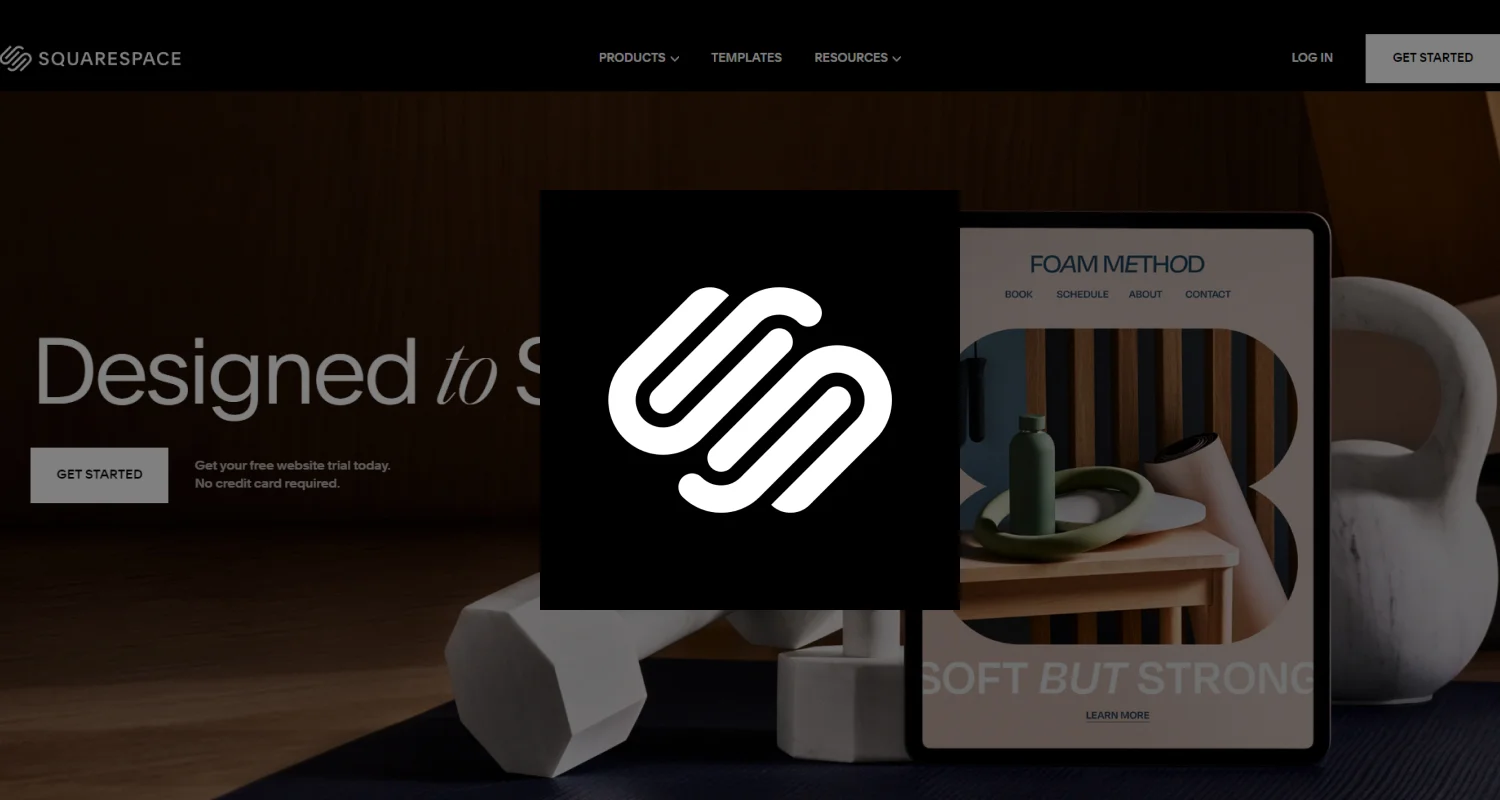
Squarespace website builder
Squarespace empowers you to create a stunning and functional website, even if you have zero coding experience. Here’s what makes them a great choice for small businesses:
- Visually Appealing Start: Squarespace is renowned for its beautiful, designer-made templates across various industries. Find the perfect one to match your brand identity.
- Drag-and-Drop Editing: Squarespace makes website creation a breeze with its user-friendly drag-and-drop interface. Simply point, click, and customize!
- All-in-One E-commerce: Squarespace offers robust e-commerce features, allowing you to sell products, manage inventory, and securely process payments – all within their platform.
- Mobile-Optimized: Your website will automatically adjust to look great on any device, ensuring a seamless browsing experience for your customers.
- SEO Features Included: Squarespace helps your website rank higher in search results with built-in SEO tools to optimize your content.
- Powerful Marketing Integrations: Squarespace integrates with various marketing platforms, making it easy to reach your target audience and grow your business.
- Award-Winning Customer Support: Squarespace is known for its excellent customer support, providing help and guidance whenever you need it.
Here’s a balanced view of Squarespace, highlighting its pros and cons to help you decide:
Pros:
- Beginner-friendly with a beautiful user interface
- Stunning website templates for a professional look
- Powerful e-commerce features for online sales
- Responsive design ensures mobile-friendliness
- Built-in SEO tools for better search engine ranking
- Integrates with various marketing platforms
- Excellent customer support
Cons:
- Less customization flexibility compared to some builders
- Pricing plans can be slightly higher than some competitors
- Limited app integrations compared to open-source platforms
Perfect for:
Squarespace is ideal for entrepreneurs, creatives, and small businesses who prioritize a beautiful website with built-in functionality and excellent customer support. It’s a great choice for those who don’t want to deal with coding but still want a professional and user-friendly online presence.
3. Shopify – Best E-commerce Website Builder.


Shopify Website Builder
Shopify isn’t just a website builder; it’s a complete toolkit designed to empower your business to thrive online. Here’s why Shopify might be the perfect platform for you:
- Effortless Storefront Creation: Build a beautiful and functional online store with Shopify’s intuitive drag-and-drop interface. No coding knowledge is required!
- Designed for Selling: Shopify is packed with features specifically designed for e-commerce. Manage products, inventory, shipping, and secure payments – all in one place.
- Scalability for Growth: As your business grows, Shopify scales with you. Upgrade your plan to handle increasing traffic, products, and sales.
- Marketing Made Easy: Shopify integrates with various marketing tools to help you reach new customers and promote your products.
- Omnichannel Selling: Sell across multiple channels, including your website, social media, and marketplaces, all managed from your Shopify dashboard.
- Point-of-Sale Integration: Take your business offline with Shopify’s POS system. Manage in-person sales seamlessly alongside your online store.
- App Store Extravaganza: Extend Shopify’s functionality with thousands of apps built by developers worldwide. Find tools for everything from accounting to advanced shipping.
Let’s take a look at the pros and cons of Shopify to help you decide:
Pros:
- User-friendly interface with an e-commerce focus
- Powerful sales and inventory management tools
- Scalable platform to grow your business
- Marketing integrations to reach new customers
- Sell across multiple channels for a wider reach
- Point-of-sale integration for offline sales
- Huge app store to customize your experience
Cons:
- Pricing plans can be higher than some website builders, especially for larger stores
- Less design flexibility compared to completely open platforms
- Transaction fees apply unless using Shopify Payments
Perfect for:
Shopify is ideal for businesses serious about e-commerce. It’s a powerful platform that caters to entrepreneurs, startups, and established brands looking to scale their online sales. If you prioritize features specifically designed for selling online, Shopify is a strong contender.
4. GoDaddy – Best Website Builder

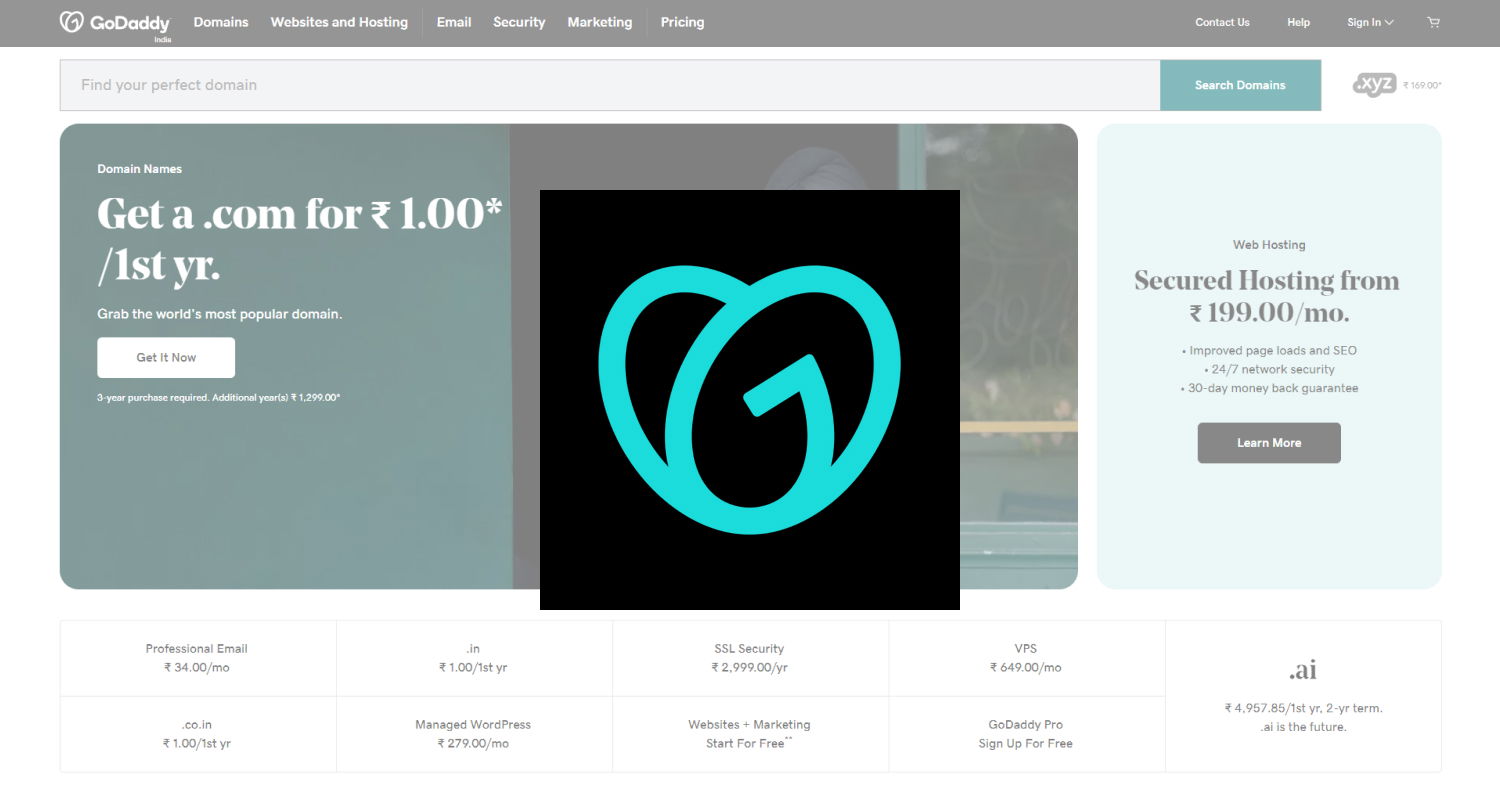
Godaddy website builder
GoDaddy is a household name when it comes to building a website, but it offers more than just domain registration. Here’s what GoDaddy can do for your small business:
- Domain Done Right: Find the perfect domain name to represent your brand and establish your online identity with GoDaddy’s search tools and domain registration services.
- Website Building Made Easy: GoDaddy offers user-friendly website-building tools with drag-and-drop functionality. Choose from beautiful templates and customize them to fit your needs, even if you have no coding experience.
- E-commerce Ready: GoDaddy Websites + Marketing plans come equipped with online store features, allowing you to sell products and manage inventory directly from your website.
- All-in-One Marketing Suite: GoDaddy offers marketing tools like email marketing, SEO optimization, and social media integration to help you reach new customers and grow your online presence.
- Security at the Forefront: GoDaddy prioritizes website security with features like SSL certificates and website security scans to protect your business and customer data.
- 24/7 Support: Get help whenever you need it with GoDaddy’s customer support team available around the clock.
Here’s a breakdown of GoDaddy’s pros and cons to help you decide if it’s the right fit:
Pros:
- Beginner-friendly website builder with templates
- Domain registration and management services
- E-commerce features for online sales
- Marketing tools to reach new customers
- Security features to protect your website
- Reliable 24/7 customer support
Cons:
- Limited design flexibility compared to some builders
- Pricing plans can be complex with add-on fees
- Upselling can be a turn-off for some users
Perfect for:
GoDaddy is a great option for beginners and small businesses who want a convenient all-in-one solution for building a website, managing their domain name, and incorporating basic marketing tools. It’s user-friendly and offers reliable customer support. Be mindful of potentially complex pricing structures and upselling tactics.
5. Square Online – Best Website Builder

Square website builder
If you’re already using Square’s point-of-sale system for your brick-and-mortar business, then Square Online might be the perfect bridge to take your business online. Here’s why:
- Seamless Integration: Square Online integrates seamlessly with your existing Square point-of-sale system. Manage your online and offline inventory, sales, and customer data all in one place, saving you time and effort.
- Free to Start: Test the waters with Square Online’s free plan. You only pay a processing fee when you make a sale, making it a budget-friendly option for getting started.
- Easy Website Creation: Build a professional-looking website with Square Online’s user-friendly interface. Choose from various templates and customize them to match your brand.
- Mobile-Optimized: Your website will automatically adjust to look great on any device, ensuring a smooth shopping experience for your mobile customers.
- Sell on Social Media: Easily integrate your Square Online store with Facebook and Instagram, allowing you to sell directly through your social media channels.
- Payment Processing Made Easy: Leverage Square’s trusted payment processing system to securely accept online payments from your customers.
- Upgrade for More Power: Square Online offers paid plans with additional features like abandoned cart recovery, customer reviews, and discounted shipping options to help you grow your online business.
Here’s a quick look at the pros and cons of Square Online to help you decide:
Pros:
- Seamless integration with the Square POS system
- Free plan to test the waters
- User-friendly website builder with templates
- Mobile-optimized for a great browsing experience
- Sell directly on social media platforms
- Secure payment processing with Square
- Upgradeable plans for advanced features
Cons:
- Limited design flexibility compared to some builders
- The free plan has limited features
- Fewer marketing tools compared to dedicated e-commerce platforms
Perfect for:
Square Online is ideal for existing Square users who want to expand their business online. It’s a convenient and budget-friendly solution to create a professional website with integrated inventory management and secure payment processing. However, if extensive marketing tools or complete design freedom are your top priorities, you might consider exploring other website builders.
6. Hostinger – Best Website Builder
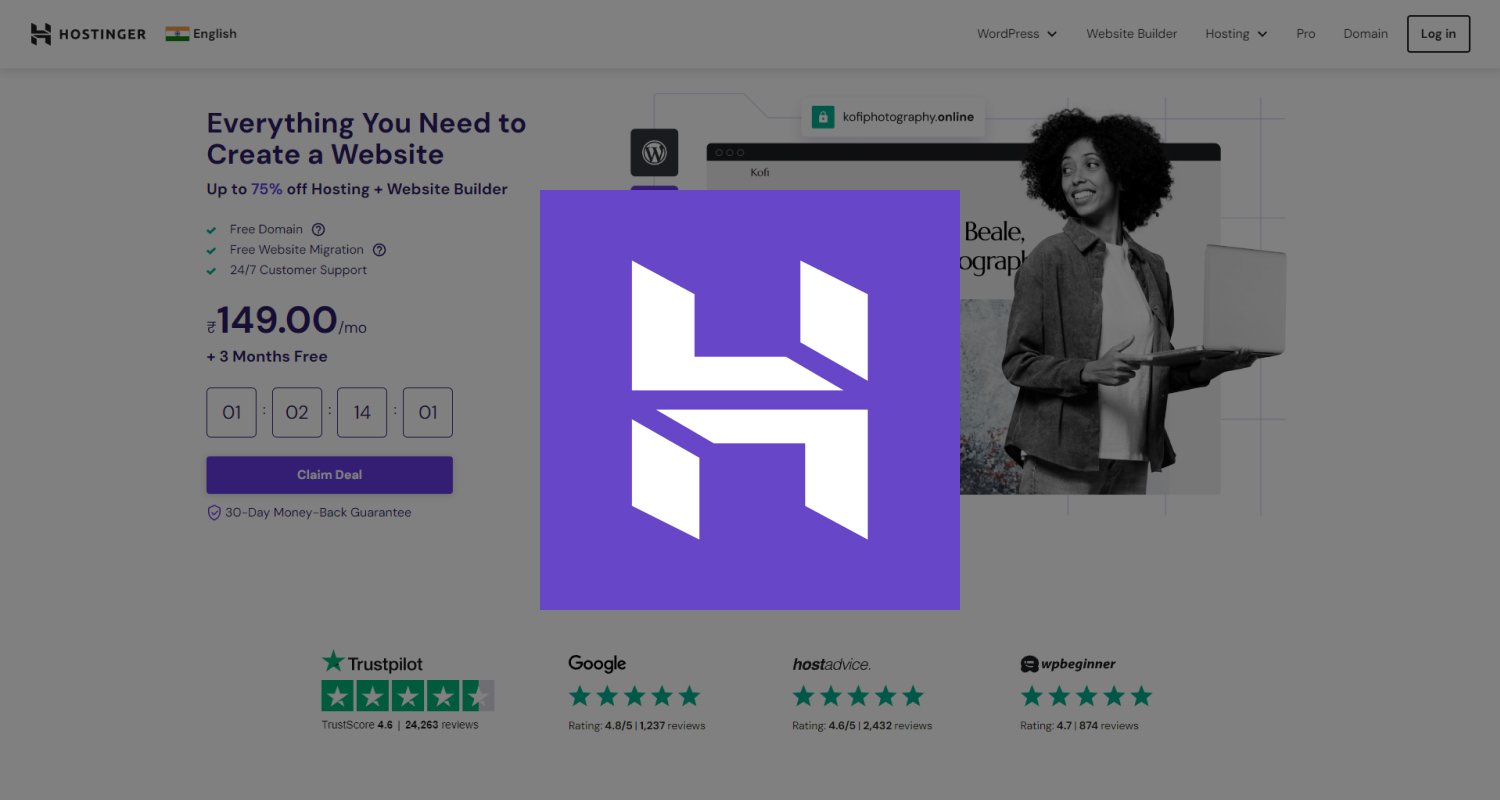
Hostinger Website Builder
Hostinger might not be a website builder like Wix or Squarespace, but it excels in providing affordable and reliable web hosting solutions. Here’s what Hostinger can offer your business:
- Cost-Effective Hosting: Hostinger is known for its competitive pricing, making it a great choice for startups and budget-conscious businesses.
- Plans for Every Need: Whether you’re a beginner with a simple website or a growing business with complex needs, Hostinger offers a variety of hosting plans with features to match.
- Easy Website Management: Hostinger’s control panel is user-friendly, allowing you to manage your website files, databases, and email accounts with ease, even for non-technical users.
- Security at the Core: Hostinger prioritizes website security with features like free SSL certificates, automatic backups, and protection against common threats.
- 24/7 Customer Support: Get help whenever you need it with Hostinger’s multilingual customer support team available around the clock.
- Website Building Options: While not a dedicated website builder like Wix, Hostinger offers various integrations with popular website builders like WordPress, allowing you to easily create your website using a familiar platform.
Here’s a breakdown of hostinger’s pros and cons to help you decide:
Pros:
- Affordable web hosting plans to fit any budget
- A variety of hosting options for different website needs
- User-friendly control panel for easy management
- Security features to protect your website
- 24/7 customer support for assistance
- Integrates with popular website builders for building your site
Cons:
- Not a website builder itself; requires integration with a separate platform
- Limited design flexibility compared to all-in-one builders
- Upselling for additional features on some plans
Perfect for:
Hostinger is ideal for budget-conscious businesses and individuals who want reliable web hosting without breaking the bank. It’s a user-friendly platform with a good balance of features and affordability. However, if you prioritize a completely drag-and-drop website creation experience with built-in design tools, a website builder like Wix or Squarespace might be a better fit.
7. Webflow – Best Website Builder

Webflow isn’t your typical website builder. It’s a powerful platform that bridges the gap between design and development, allowing you to create stunning and functional websites visually, without needing to write code. Here’s why Webflow might be the perfect tool for you:
- Design Freedom: Unleash your creativity with Webflow’s visual design tools. Drag, drop, and customize elements to create exactly the website you envision, with pixel-perfect control over every detail.
- Clean Code Generation: Focus on design, and Webflow takes care of the technical stuff. It generates clean, semantic code for your website, ensuring smooth performance and easy maintenance.
- Prototyping Made Easy: Quickly bring your website ideas to life with Webflow’s built-in prototyping features. Test different layouts and user flows before publishing your final design.
- CMS for Easy Content Management: Webflow integrates a powerful content management system (CMS) within its platform. Easily add, edit, and update your website content without needing any developer assistance.
- E-commerce Functionality (Paid Plans): Sell products directly from your website with Webflow’s e-commerce features (available on paid plans). Manage inventory, shipping, and secure payments all in one place.
- Advanced Features for Developers: If you’re comfortable with code, Webflow offers access to the underlying code for further customization and integration possibilities.
Here’s a look at both sides of the coin to help you decide if Webflow is right for you:
Pros:
- Unmatched design freedom and pixel-perfect control
- Clean code generation for website performance and maintenance
- Built-in prototyping tools for rapid iteration
- Integrated CMS for easy content management
- E-commerce functionality for online sales (paid plans)
- Developer-friendly access to underlying code for more control
Cons:
- Steeper learning curve compared to drag-and-drop website builders
- Limited third-party app integrations compared to some platforms
- Pricing plans can be higher for larger or more complex websites
Perfect for:
Webflow is ideal for designers, creative agencies, and businesses who prioritize complete design freedom and a visual development approach. It’s also a great choice for those comfortable with some coding and who want more control over their website’s functionality. However, a simpler website builder might be a better starting point if you’re a complete beginner with no coding experience and a tight budget.
8. Framer – Best Website Builder

Framer stands out from the website builder crowd. It’s a powerful design and development platform focused on creating high-fidelity prototypes and interactive websites. Here’s what Framer offers:
- Interactive Prototyping: Bring your website ideas to life with Framer’s code-based prototyping tools. Design interactive elements, user flows, and micro-interactions to create ultra-realistic prototypes for user testing and design validation.
- Component-Based Design: Build websites with reusable components, promoting consistency and streamlining the development process. This is ideal for complex websites with similar elements across different pages.
- Collaboration Made Easy: Framer fosters seamless collaboration between designers and developers. Designers can create interactive prototypes, while developers can access the underlying code for further customization and implementation.
- Pushing the Boundaries: Framer allows for pushing the boundaries of web design by incorporating custom animations, complex interactions, and unique visual effects that may not be achievable with traditional website builders.
- Learning Curve: While powerful, Framer does have a steeper learning curve compared to drag-and-drop website builders. Basic coding knowledge is recommended to unlock its full potential.
Here’s a quick breakdown of Framer’s pros and cons to help you decide:
Pros:
- Create ultra-realistic and interactive prototypes for user testing.
- Design websites with reusable components for efficiency.
- Fosters collaboration between designers and developers.
- Push the boundaries of web design with unique features.
Cons:
- Steeper learning curve compared to drag-and-drop builders.
- Basic coding knowledge is recommended for full functionality.
- Might be overkill for simple websites with basic needs.
Perfect for:
Framer is ideal for design teams, agencies, and businesses building complex interactive websites or web applications. It’s a powerful tool for those who want to create highly customized and user-tested experiences. However, if you’re a beginner looking for a simple website builder with a user-friendly interface, Framer might not be the best fit.
Conclusion
Choosing a website builder is similar to selecting the perfect tool for a specific task. For those new to website creation, user-friendly platforms such as Wix, Squarespace, or GoDaddy offer accessible options.
If you’re on a budget, Hostinger provides cost-effective hosting solutions with the ability to add a website builder. For those seeking intricate designs, Webflow offers visually appealing options.
Meanwhile, Framer is designed for advanced users who require complex functionality. Most builders offer free trials, enabling you to experiment and find the ideal platform for your project.








